Originally published 2009
Think back to a time when you were a new patient. Perhaps you were interested in finding out more about lasik or cosmetic surgery. Maybe you were new in town and wanted to establish yourself with a doctor, chiropractor, or veterinarian. Do you remember having an experience as a new patient in which you were so impressed by the service that you immediately told your family, your co-workers, or your neighbors about the great experience?
Exceptional telephone communication skills are your very best marketing tool. The feelings and the “wow” factor you create will be what people not only remember but what they talk about and recommend with enthusiasm.
The telephone is the gateway into your practice. It represents the first tangible interaction and starts to shape the way a patient views your competency, level of professionalism, and value. The patient’s journey toward ultimately saying “yes” or “no” to the recommended treatment plan actually starts before the initial telephone call. It begins when the patient first learns about you. Maybe the first impression was the yellow page ad, radio spot, or newspaper article you’ve invested in. Or maybe they received a personal referral from a coworker or family member. By the time they pick up the phone to call you, they already have an idea of what to expect. Trouble is, you don’t know whether you’ve got some ground to cover or if you just need to keep a good thing going. Your job is to bridge the gap of confidence and credibility as soon as possible by narrowing the field and focusing on the target. Only then can you hit a bulls-eye!
Whenever you try to improve a skill, it’s important to start with the end in mind. In this case, the end you desire is to convert as many prospective callers to appointments as possible. You also want every caller, whether they make an appointment or not, to hang up the telephone and feel amazed at how professionally they were treated. You want your team to exceed the caller’s expectations. In addition, you want this goal obtained in an efficient amount of time and with consistency of message.
The following steps will help you transform your telephone skills to exceptional:
1. Let the caller know you are glad they called and find out their name.
Caller: “Hello. I was wondering if you took my insurance plan?”
Office: “Well, I’m really glad you called our office and I’d love to try to help you! Again, my name is Katherine.
May I ask your name?”
Caller: “My name is Carrie Simmons.”
2. Get in the “questioning seat” as soon as possible.
Don’t ever assume the first question the caller asks is the real issue. Actually, my experience shows it rarely is. Your objective is to uncover that issue and help them see why you are the best office to help. Try to answer the caller’s initial question with another question to help narrow the field of concerns to address.
Don’t assume that what they originally asked for is all they will do or even what they need. Proceed with asking all the questions you need to clearly identify in your mind what the real issues are for this patient.
Use any opportunity the patient gives you to connect personally. And remember once you identify the caller’s main objectives and concerns, you have to sell your dental office specifically regarding those concerns. It’s not up to the patient to sell themselves on you… it’s up to you to sell them on you!
3. Offer the best solution based upon what you have discovered in the questioning phase.
This becomes much easier to do once you’ve identified the patient’s real concerns. Remember, it is important to build value for the solution to which you are steering the patient.
4. Now, you can get those details!
Save the details like address, insurance information, pre-med questions, etc. until after you’ve “made the sale.” So many receptionists start by asking these questions when they don’t know what the patient wants or even if the patient will schedule at all. It’s very impersonal and does nothing to build a relationship; often we schedule them for what they asked for instead of what will truly meet their needs.
5. Always end your call by reconfirming the appointment specifics as well as reassuring the patient a good decision has been made.
The two ingredients that make a phone call great are:
1) possessing the skills to know where you are going with the call, and
2) the level of sincere enthusiasm and personal concern you convey to the caller.
Your enthusiasm and attitude are more powerful than any words you could ever use. You take several of these calls a day. The potential patient may make one of these calls every five years. Every call is a chance to help someone resolve a problem and see a great dentist. So, beef up your skills and crank up your enthusiasm for the next call you take!
Katherine Eitel-Belt is owner of Lion Speak, a speaking and communications coaching firm.
FMI: Info@LionSpeak.net. 800-595-7060.
Read more by Katherine:

